NATIONAL GOVERNANCE SYMPOSIUM 2024
"Strengthening Subnational Governance for Inclusive Economic Development"
19-20 December Nepal Administrative Staff College, Jawalakhel
#NGS24
19-20 December Nepal Administrative Staff College, Jawalakhel
#NGS24


Government of Nepal Office of The Prime Minister & Council of Ministers, Singhadurbar, Kathmandu

Government of Nepal National Planning Commission

Government of Nepal Ministry of Finance


Organizing partners



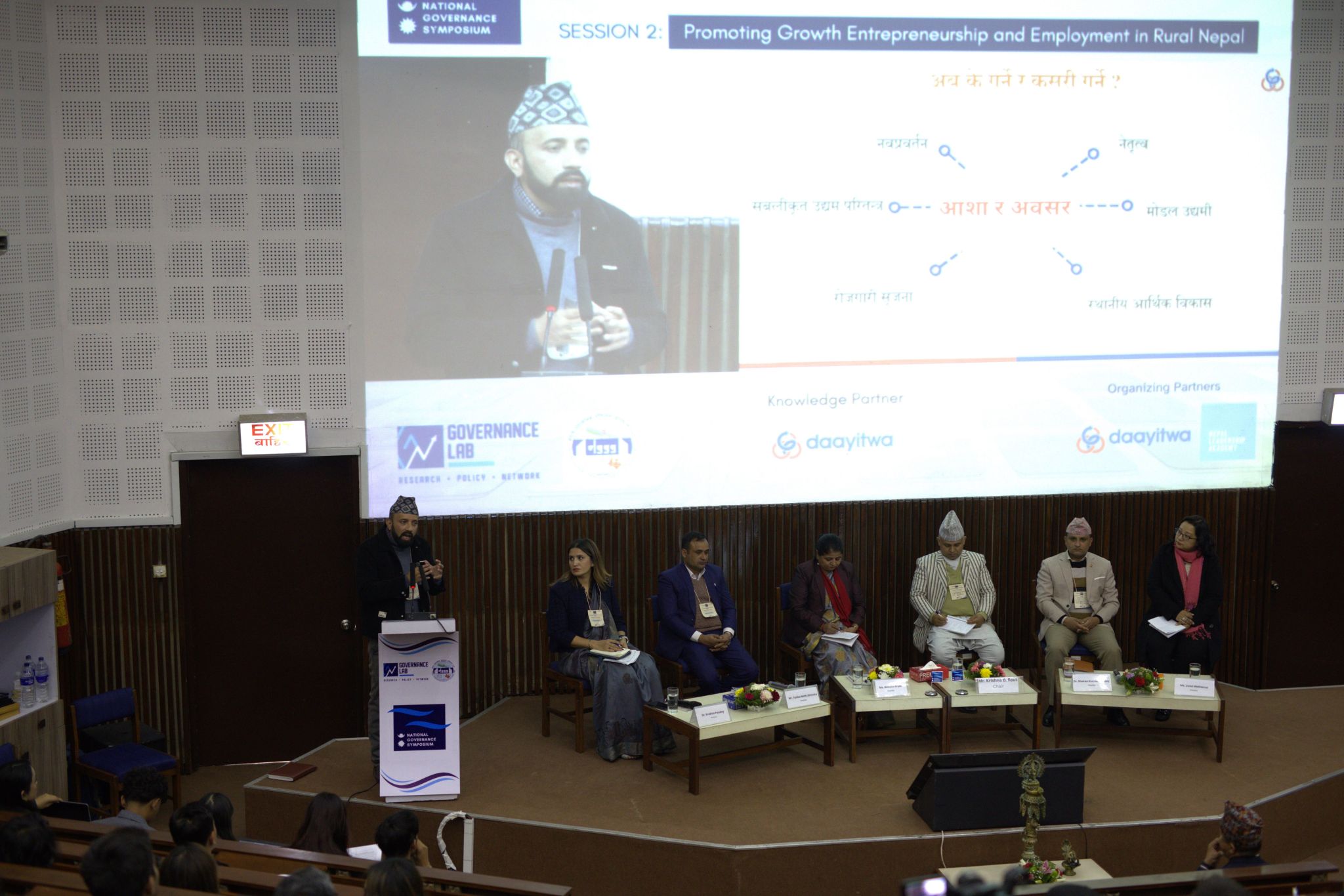
Nepal transitioned to a federal democratic republic in 2015, aiming to promote inclusion at all levels of governance- local, provincial, and federal. While the milestone transition to a federal system is an important step towards good governance and inclusive growth, there are still some significant challenges facing Nepal today.
Hundreds of thousands of youth are leaving annually, often for temporary employment abroad, leading to a drain of talent and labor force capacity. This significant out-migration points to structural issues within Nepal’s labor market- particularly lack of sufficient job opportunities, underscoring an urgent need for effective measures that foster inclusive, stable and sustainable employment.
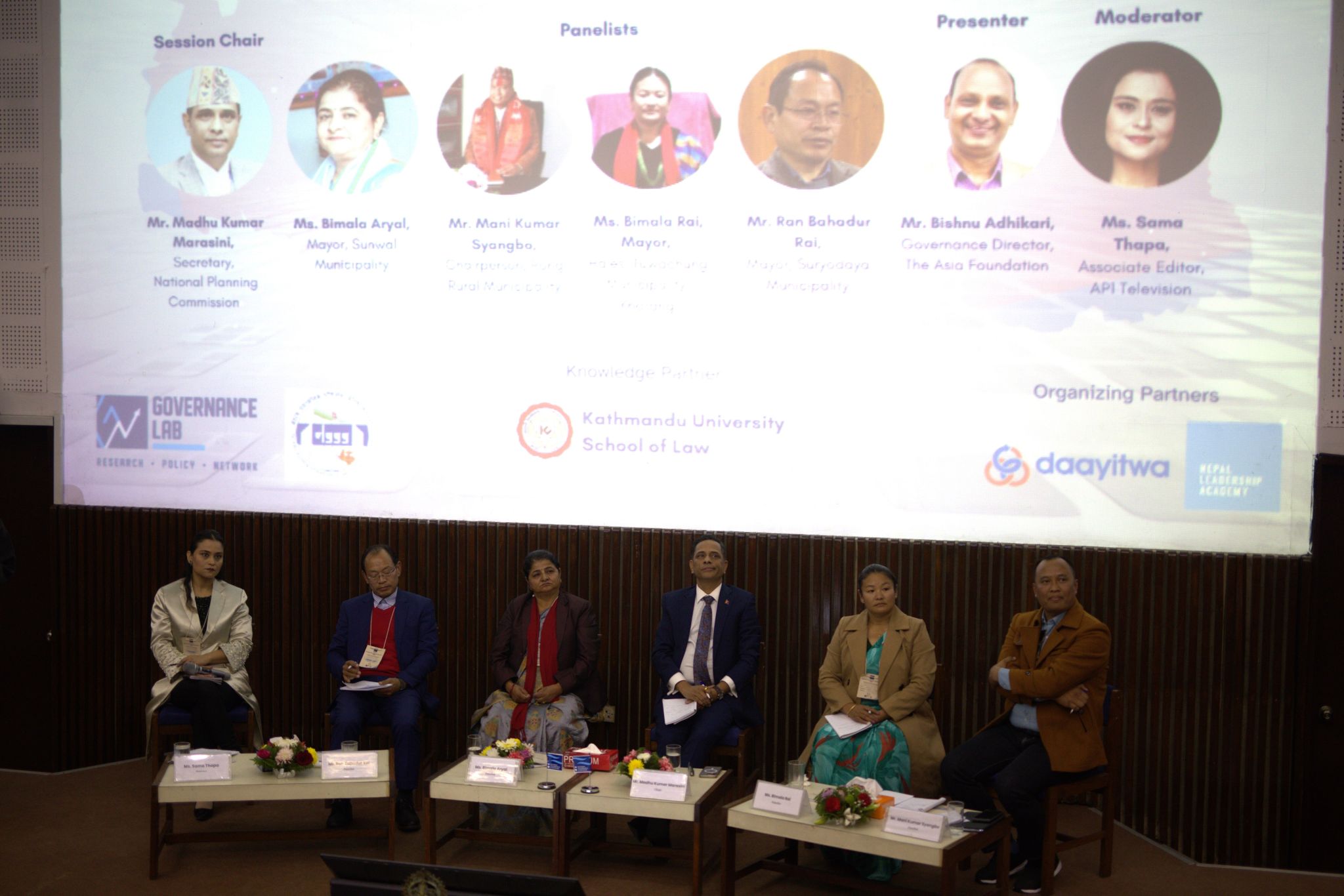
Nepal’s inclusive economic development depends on the effectiveness of its local governance system. Despite constitutional provisions granting municipalities authority over key sectors like health, education, and infrastructure, challenges such as intergovernmental coordination issues, resource
constraints, and policy conflicts persist. Weak financial independence, delayed fund transfers, and limited private sector engagement hinder economic growth, while citizen participation remains inadequate. Addressing these gaps requires empowering local governments through financial, administrative, and legal reforms, alongside structured collaboration among all governance levels.Strengthening participatory planning mechanisms and integrating Sustainable Development Goals (SDGs) into local strategies can help ensure equitable development and effective policy
implementation. To enhance efficiency and accountability, Nepal must focus on capacity building, youth engagement, and improved transparency. Initiatives like skill development programs and entrepreneurship platforms can leverage the potential of Nepal’s youth to drive economic progress. Strengthening governance mechanisms, such as digital platforms for financial oversight, public-private partnerships, and participatory decision-making models. These options can foster trust and streamline development efforts. Learning from successful case studies and scaling proven interventions will be critical in building a governance framework that ensures equitable growth, maximizes citizen participation, and supports long-term sustainability.
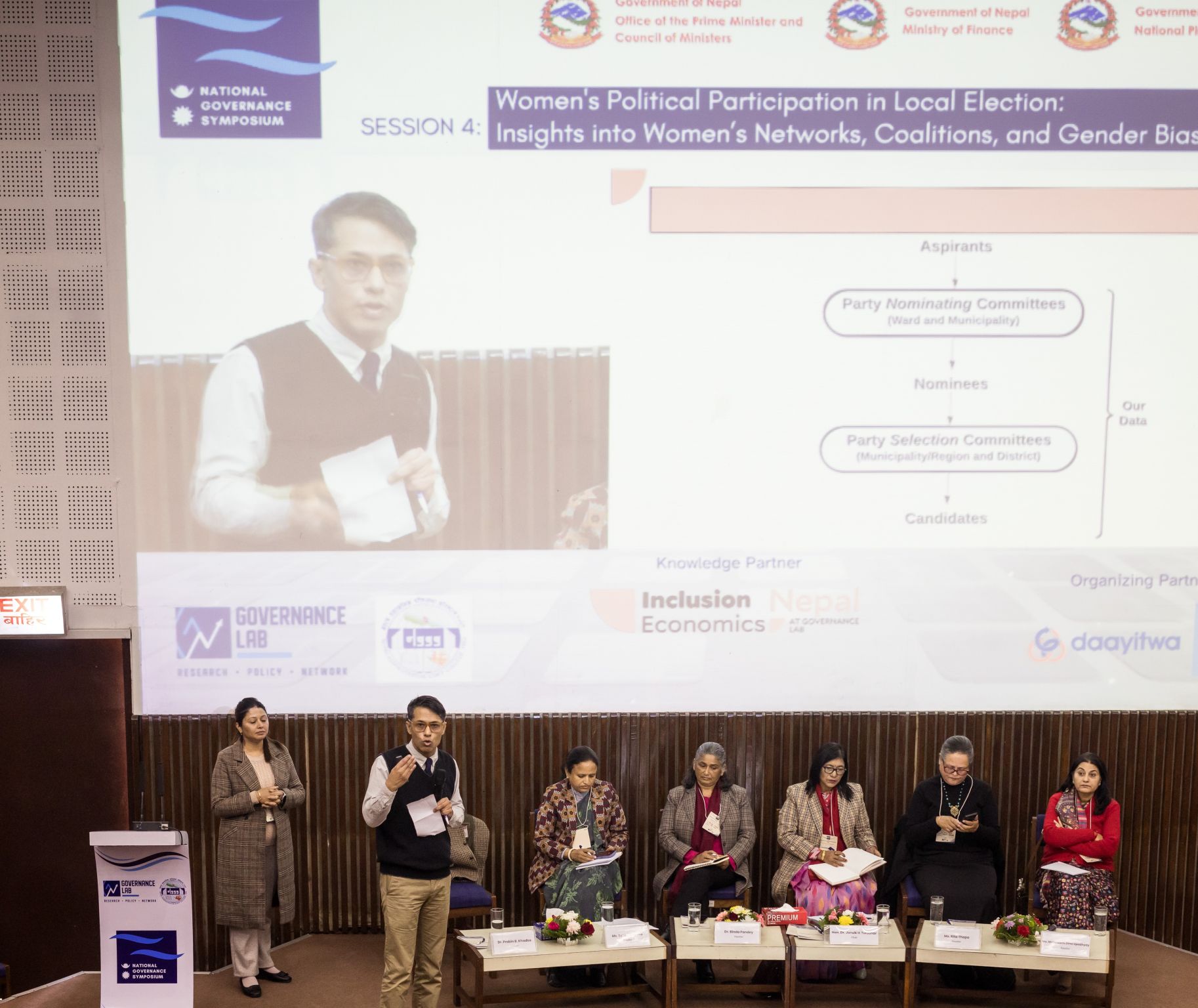
Women in Nepal have shown increasing political aspirations, aiming to become policymakers and leaders. Over the years, there has been gradual progress in women's political participation. Despite these improvements, the increase remains marginal, especially considering Nepal's federal system has introduced inclusive rights and policies to encourage women's participation at local levels. Several barriers hinder women's political participation. In 2023, out of 7,000 women aspiring for political roles, only about 700 were nominated at ward or local government levels, reflecting a significant gap between aspirations and opportunities. Within party structures, gender disparity is stark—only 5% of members in party selection committees were women, further limiting their influence in decisionmaking processes.
Cultural and societal norms also pose challenges, as many voters are not yet prepared to accept women in leadership roles. Unlike male politicians, women politicians are fragmented and isolated, especially at the local level. Male politicians have been able to capitalize their support networks and relationships not only in terms of getting election tickets but also getting promoted within the party hierarchy. On the other hand, due lack of capacity and experience in forming political relationships, women politicians have not been able to move beyond the quota protected seats.
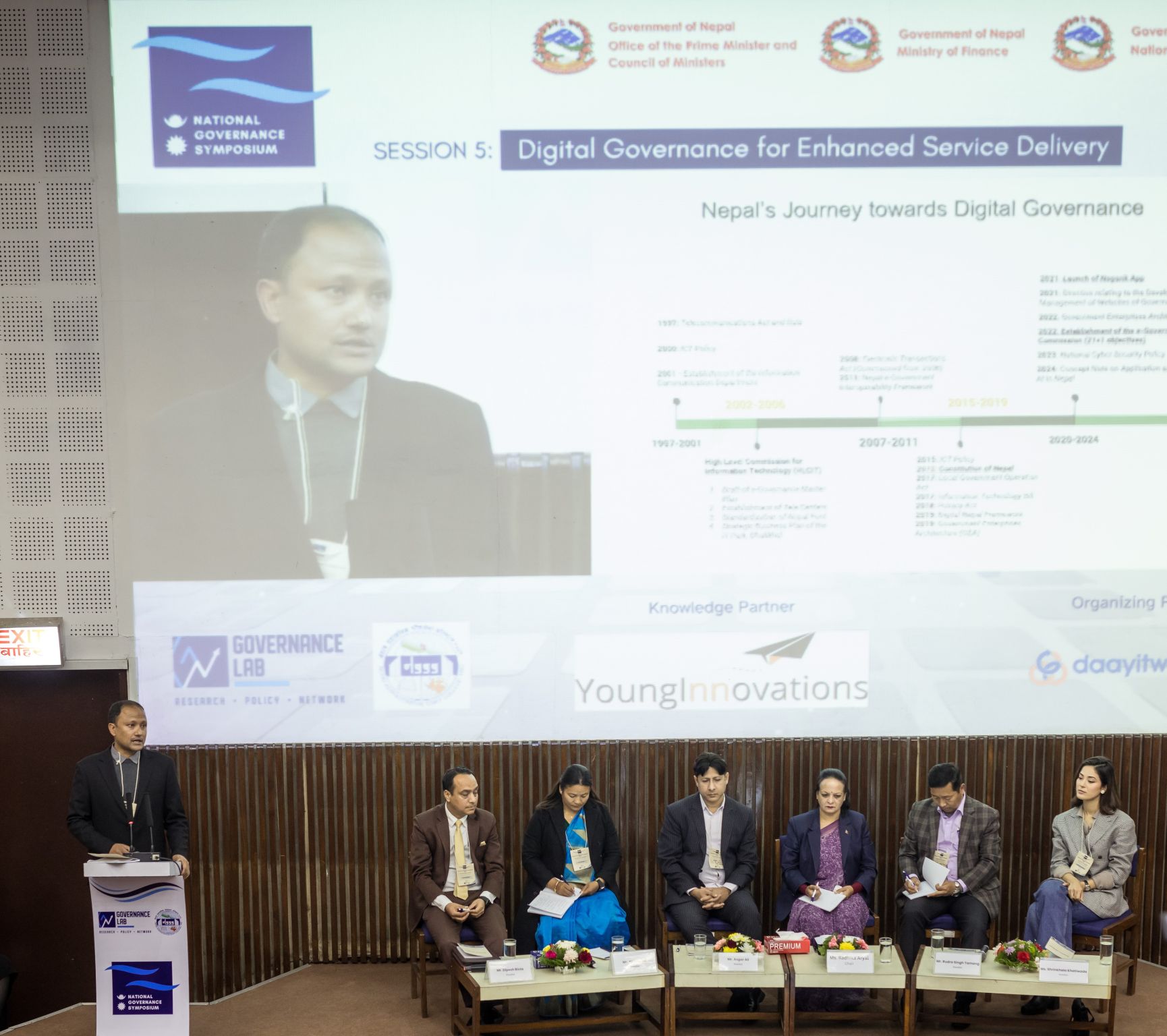
Nepal’s digital governance landscape faces critical challenges that hinder efficiency and citizen-centric service delivery. Data fragmentation and interoperability issues result in isolated records across government levels, forcing redundant data collection and weakening public service sustainability.
Essential documents such as birth certificates and voter IDs must be integrated into a unified system to eliminate inefficiencies and improve accessibility.
Beyond data structure, fragmented digital solutions and software sustainability remain major concerns. Independent applications for revenue management and registration often lack long-term viability due to inaccessible source codes, inconsistent security measures, and renewal-based dependencies. A centralized digital framework can mitigate these weaknesses, ensuring long-term interoperability and interagency coordination.
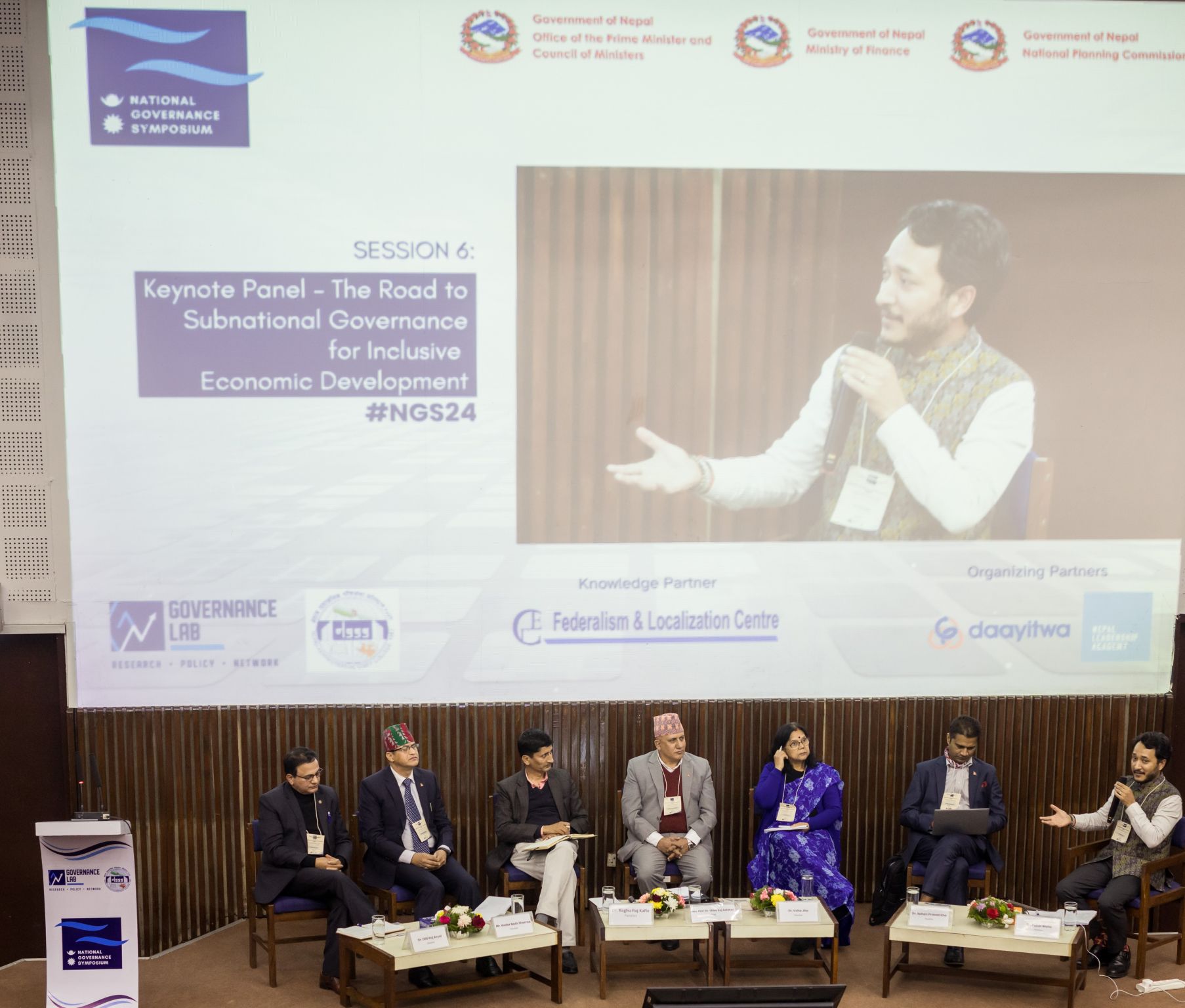
As Nepal's federal system matures, provincial and local governments are emerging as key players in delivering development outcomes, promoting economic equity, and ensuring inclusive subnational governance. However, this potential is constrained by weak intergovernmental coordination,
inconsistent fiscal transfers, fragmented program ownership, and limited capacity for data-driven planning. This policy brief highlights strategic interventions to strengthen provincial governance, empower local economies, and align development efforts across all tiers of government.
Key recommendations include institutionalizing Provincial Project Banks to ensure equitable resource allocation, operationalizing joint program ownership models through standardized MOUs, and formalizing a Dual-Track Women’s Economic Empowerment (WEE) strategy. Moreover, the brief
advocates for enhancing digital governance, strengthening Public-Private Partnership (PPP) frameworks, and investing in capacity-building initiatives such as Provincial Leadership Academies and Governance Fellowships. Establishing outcome-linked grant formulas and transparent performance
dashboards will further drive results-oriented governance and reduce duplication of efforts.